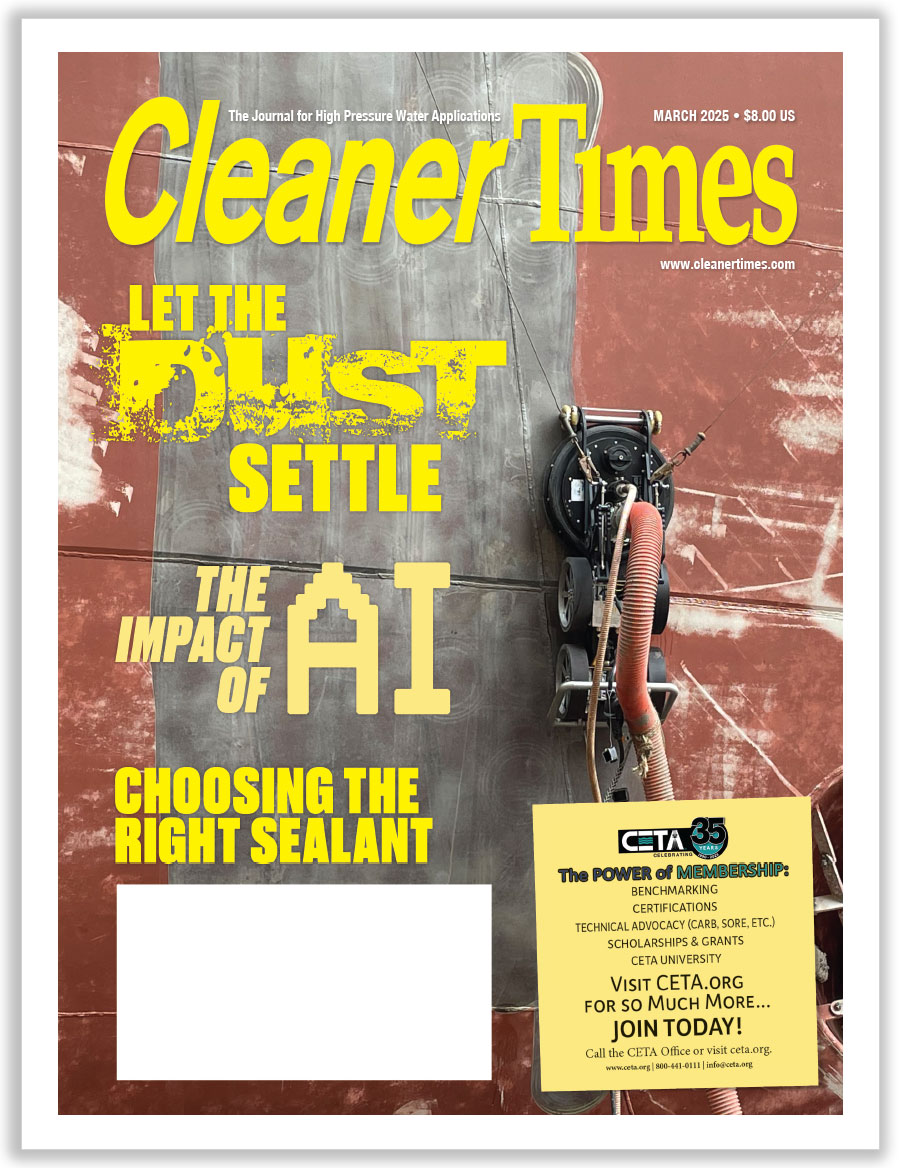
Priceless—The Value of a Good Banking Relationship
By Diane M. Calabrese / Published December 2018

F
orming A Good Banking Relationship
Angel investors, crowd-sourcing, and alternative currencies aside, business owners require a good banking relationship.
A strong banking partner fortifies a business. “It builds trust so that when it comes time to expand and the need for financing is required, it is much easier to get approved,” says Michael Hinderliter, president of Steamaway Inc. in Fort Worth, TX.
“I am currently going through a building purchase,” says Hinderliter. “My relationship with the bank and long good-standing history with them made the approval process much easier than with other banks.”
Relationship-building with a bank has familiar components. “Find out who your agent or representative is at the bank and invite them to lunch about every six months to give them an overview of how things are going,” explains Hinderliter. “It’s not uncommon for financials to be shared as well.”
Even with the wide adoption of internet banking, the connection with a banking agent remains essential. “As far as building a relationship with those who work at the branch, the online option has probably made that harder; but as for working with your agent, not much has changed,” says Hinderliter.
As with many business-supporting technologies, it is about balance. There are upsides to internet banking. “It makes it easier to do our daily bank business,” says Dennis Black, president of McHenry Pressure Cleaning Systems Inc. in Frederick, MD. “But you do not have the contact you did when you physically had to go to the bank.”
Take advantage of electronic communication to stay in touch, but don’t stop there, says Black. “I find it important to attend bank functions. We are shareholders in our main bank.”
Local banks can be a good choice. “I have found it best to work with a local bank that understands small business,” says Black. “Work with your bank representative. Spend some social time with them.”
A good relationship with a bank is sustained by results. “Probably the most important factor in maintaining the relationship is keeping up your end of any deal,” says Black. “Do that, and live up to what you commit to doing.”
Having a good relationship with a bank is “important whether you need to borrow—obtain loans—or not,” says Black. “It is essential your banker knows your business and understands it. My relationship has helped us maintain our business requirements. My bank rep has helped me in other ways and provided important references and advice on all types of matters.”
“Priceless”
Yes, “priceless” is the way that Roy Pennington, owner of Hi Pressure Cleaning Systems Inc. in Houma, LA, describes the value of a good banking relationship. “It’s like having aces in a Texas hold’em game.”
Why? “It gives you the freedom to make fast decisions and be able to mobilize and capture new opportunities while your competition is still trying to figure out if they can even try to take on this potential project,” explains Pennington.
Consider a concrete example, says Pennington. “You have the cash backing to immediately purchase 30-plus hot-water rental units when the need arises, which puts you two squares ahead of other players if they are spending their time just figuring out, ‘How can we do this?’”
At the top of any list of must-haves in a good banking relationship, comes “trust,” Pennington emphasizes. He explains his company has “gone though” five different financial institutions.
“The mega-bank that bought our local bank failed us when they got too top-heavy and lending decisions were no longer made by a local loan officer,” says Pennington. “When it took two weeks to get approval on a loan for a new truck with an approved written offer from the seller ready to sign and go, it became apparent that the bank had outgrown their ability to service my needs.”
Reciprocity matters. “Trust is a two-way street,” explains Pennington. “We parted company with another ‘good bank’ when I looked at the loan documents and saw they were asking for my wife to personally guarantee a loan renewal.”
Because Louisiana is a community property state, his wife, who is not involved in any day-to-day operations, would have been liable for his actions in any case. To Pennington, the signature request signaled a lack of trust on the part of the banker, especially when redrafted documents still contained the clause (albeit buried).
Pennington’s response to finding the clause was short and simple: “Adios, Mr. Banker. We are out of here.”
The test of relationships comes at crucial junctures. When Pennington needed a small line of credit quickly upgraded to a substantial sum to meet demands for equipment coming from crews working to tackle recovery from a major explosion and oil spill in the Gulf of Mexico, he was able to get a positive decision from the bank in less than two days.
Online banking is not a worry in relationship-building, and it’s a benefit overall, says Pennington. “Online banking to me is tantamount to the difference between talking to my banker on my office phone versus my cell phone. There is no difference.” Moreover, the trips saved to the bank conserve time and may improve safety.
“In our company’s 27-year history, we have had two workmen’s compensation claims—both involved clerical people being rear-ended in an auto accident while going to make a bank deposit,” says Pennington.
Still, take the opportunities as appropriate to make person-to-person contact. “I make it a point when I need what I call WAM—walking around money—to go in and get a check cashed and sit with my bank vice president,” says Pennington. “She knows me, asks how my wife is doing, asks about trips and events, and most importantly, we keep each other apprised of the rumblings we hear from the street as to what is happening in our local economy.”
Timeliness
Procrastination is a bad approach to almost everything. It’s a particularly ill-advised way to put a business on good terms with a bank.
“Create the good relationship before you need something,” says Brenda Purswell, president of Alklean Industries Inc. in Pasadena, TX. She adds that the company she and John Purswell, vice president, head has had a good relationship with their bank for more than 30 years.
In the context of the good relationship, Brenda Purswell asked her banker if she had any additional comments. And Purswell relayed some additions to us.
For example, Purswell’s banker says that getting started on a relationship is as easy as opening a deposit account. The next step is to maintain the account properly because history of good financial management is very important to a bank. With such documented history, the banker can to be flexible when there is a difficult time or an economic downturn.
“Always do what you say you will do, when you say you will do it,” says Purswell. She explains that if for any reason there’s an obstacle to following through, call the banker immediately and explain what is going on, thereby moving toward a solution together.
“All businesses go through either economic or cyclical difficulties, and having a bank to assist with working capital or a credit line is essential,” says Purswell. “Many times when business is good, that is when you need capital to fund growth.”
The nature of banking business today makes forming a relationship more difficult than it has been in the past for several reasons, says Purswell. “Banking has evolved to an almost constant merger and acquisition environment. Suddenly the person you have been cultivating a relationship with is no longer there.”
The fluidity of personnel and entities should not be a deterrent. Instead, Purswell advises companies to keep multiple relationships going. It’s always good to have a backup if the unexpected, such as a bank closure, happens.
A good relationship with a bank extends in many directions. “It can make life easier for a business owner, such as in time savings,” says Purswell.
“Many times when we have needed a vehicle, server, phone system, or special equipment, I simply emailed my contact at our bank,” says Purswell. “She gets details and paperwork, and it is rushed overnight to me. We sign papers, then scan and email them back. Most times the funds are in our account the next day or the vendor is paid in that time frame.”
That kind of turnaround is “invaluable” and validates the “trust factor” between owner and bank, explains Purswell. “Relationships are crucial.”
Look to local and community banks for sincerity. “A mega bank will beg for your business and court you like a pretty girl in town, but if you call to finance a vehicle, they want five years of income tax returns, financial statements for five years, personal financials and returns for five years—and they will consider it,” says Purswell.
By the time an owner has read the list of supporting documents a mega- bank wants, explains Purswell, a phone call to your local banker whom you interact with daily will have the request processed.





